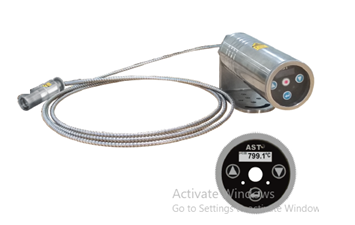Induction Heating Process
Induction heating is a process where a high frequency alternating magnetic field is used to heat electrically conductive materials, such as metals. The magnetic field induces eddy currents in the material, which in turn generates heat due to the resistance of the material to the flow of the current. The process of induction heating typically involves a coil of wire that is connected to an alternating current (AC) power source. When the power is applied to the coil, an alternating magnetic field is generated. This magnetic field then induces eddy currents in the conductive material, causing it to heat up rapidly.
Importance of Temperature Measurement in Induction Heating
Temperature measurement is crucial in induction heating as the temperature of the material being heated determines the quality and consistency of the final product. It is also essential for quality control purposes. By monitoring the temperature of the material being heated, it is possible to detect any defects or inconsistencies in the heating process, which can help to improve the overall quality of the final product. Induction heating involves the use of high-frequency electromagnetic fields, which can generate intense heat. Accurate temperature measurement is essential to ensure that the material does not overheat, which could cause damage to the process.
AST Recommendations
AST recommends A450+ FOPL infrared non-contact pyrometer for the application. A450+ FO PL is a highly accurate digital single color Fiber Optic pyrometer to provide high performance and low maintenance of non contact temperature measurement. It has a very small spot size ( down to 0.5mm) and the fast response time (2ms) enable it to measure temperature accurately even through the gap of the coils. Fibre optic version helps to keep the electronic part away from the hot area thus eliminating the need for water cooling.
Key Features
- Very fast response time of 2 msec adjustable upto 10 second and wide temperature range (600°C – 2500°C)
- Spectral range 1.0 μm
- Integrated OLED Display & Parameterizing Keys
- Analog output options 0…20mA or 4…20mA
- 2.5 mtr mono fibre optic cable and Optical head OH (l), OH (ll), OH (ll) variable or OH (lll) variable
- Laser targeting light for high precision targeting
- RS-485 Serial interface/ MOD Bus









